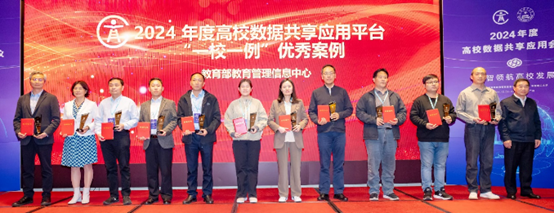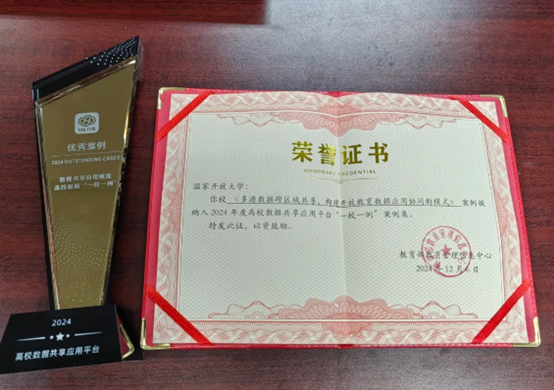![]() Recently, the "Data Intelligence Guiding University Development" 2024 Annual University Data Sharing and Application Conference took place in Guangzhou, Guangdong Province. Hosted by the Education Management Information Centre of the Ministry of Education (MOE) and organised by South China University of Technology, the event saw the participation of nearly 200 delegates from various higher education institutions.
Recently, the "Data Intelligence Guiding University Development" 2024 Annual University Data Sharing and Application Conference took place in Guangzhou, Guangdong Province. Hosted by the Education Management Information Centre of the Ministry of Education (MOE) and organised by South China University of Technology, the event saw the participation of nearly 200 delegates from various higher education institutions.
The conference reviewed the achievements of university data sharing and application platform for the 2024 and announced the results of the selection for outstanding cases. The Open University of China (OUC), along with Tsinghua University, Fudan University, Beihang University, and 17 other universities, as well as one military engineering institution, had their cases successfully selected. These cases have been included in the "One University, One Case" collection for the 2024 University Data Sharing and Application Platform.


During the conference, a promotional video and accompanying materials on the OUC's case, titled "Cross-Regional Sharing of Multi-Source Data: Building a New Collaborative Mode for Open Education Data Applications," were showcased. These resources comprehensively demonstrated the institution's achievements in the realm of data governance, sharing, and application.
As one of the first pilot units in the MOE’s initiative for university data sharing, the OUC has fully absorbed and leveraged on the MOE's experience in cross-regional, cross-institutional, and cross-tier data sharing. It has tailored this approach to the Open University system, establishing a model for the co-creation and sharing of open education data. The institution has published the "University Data Directory 3.0" and launched a data resource sharing service platform, facilitating the sharing of data governance outcomes, data resources, and data indicator systems. Furthermore, it has shared 2.09TB of data with 30 of its branches, offering vital data support for branch activities such as teaching, online teaching inspections, live class teaching behaviour statistics, course management, data reporting, and data dashboards.
In the future, the OUC will continue to strengthen its cooperation with the MOE's university data sharing platform. It will persistently advance the application of business-driven digital intelligence scenarios, harnessing the multiplier effect of data elements. By engaging in real-time, efficient, and precise data co-creation and sharing, the university aims to drive the transformative changes in the realms of "teaching, learning, management, assessment, and service" through digital intelligence. This approach will bolster the university's integrated and collaborative capabilities, thereby fostering high-quality and innovative development in open education.
By Wei Fangfang, OUC